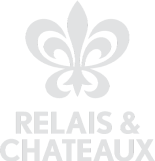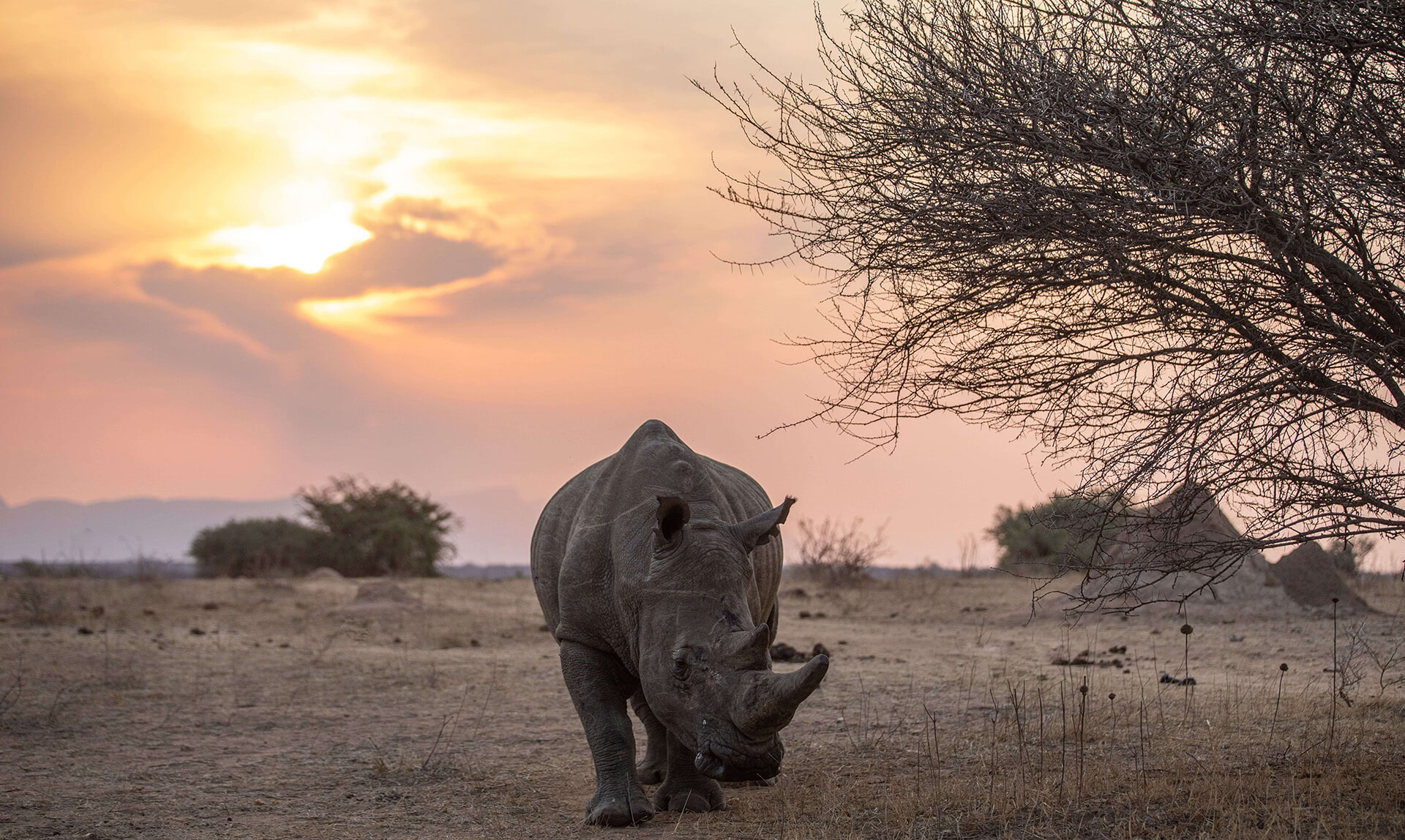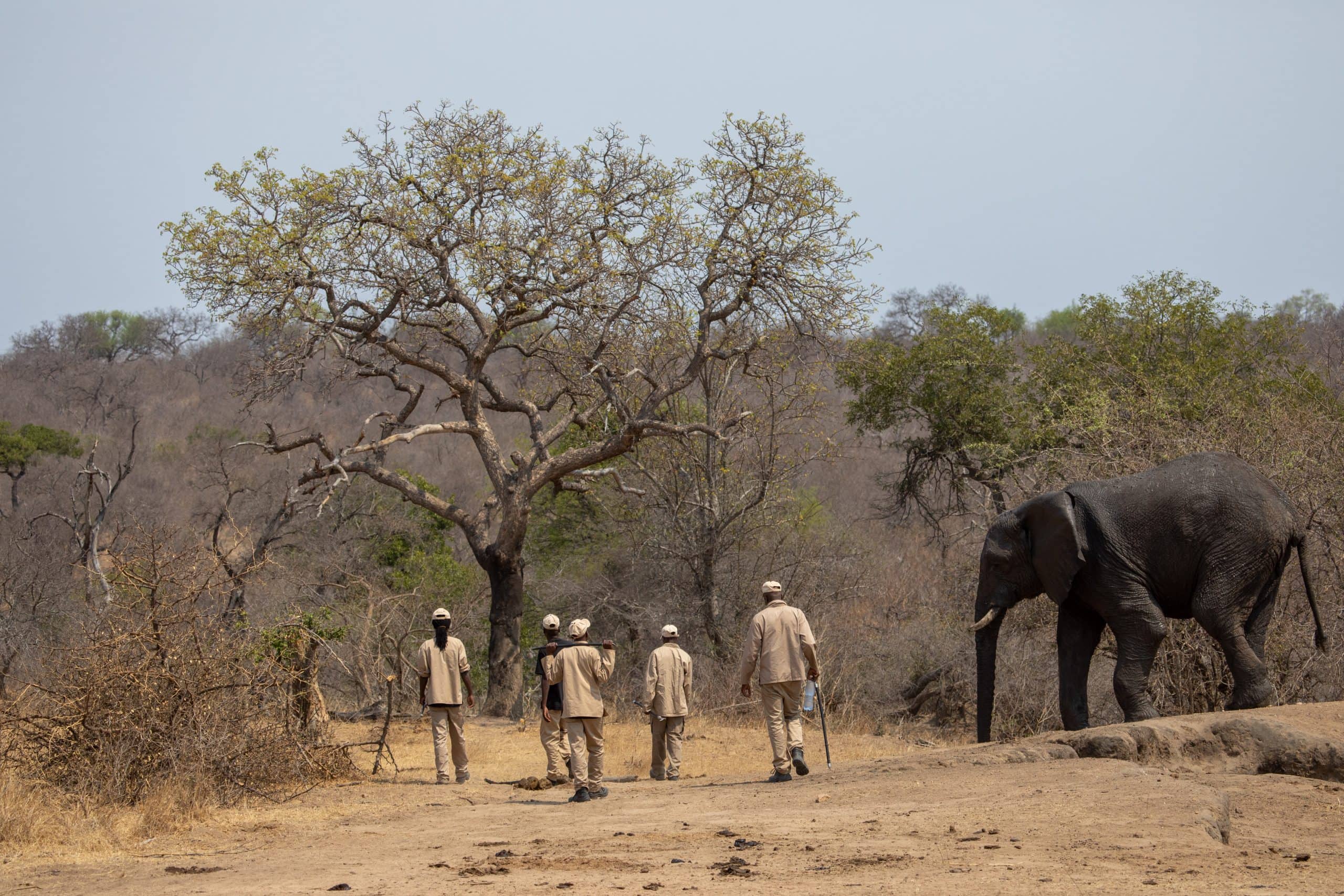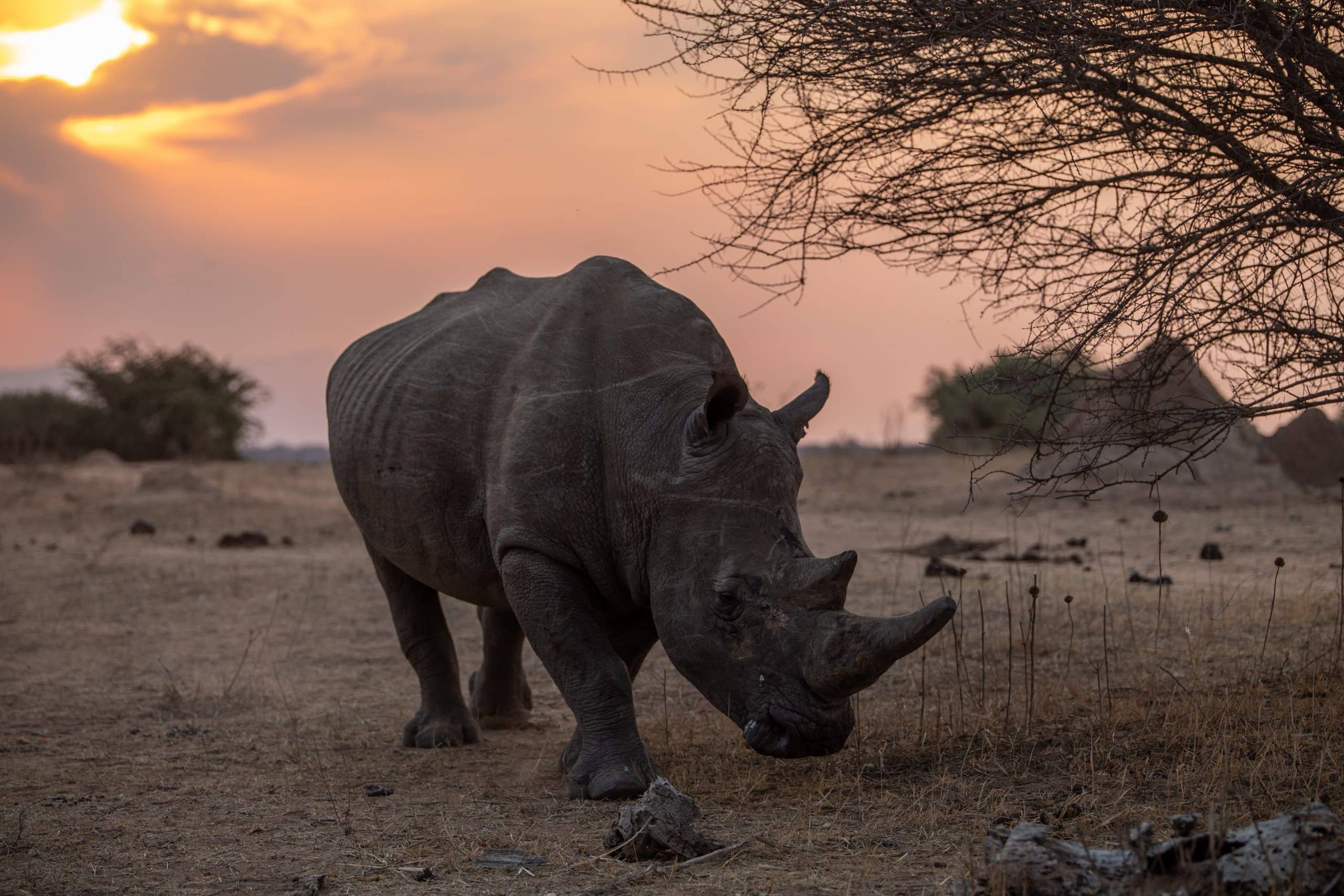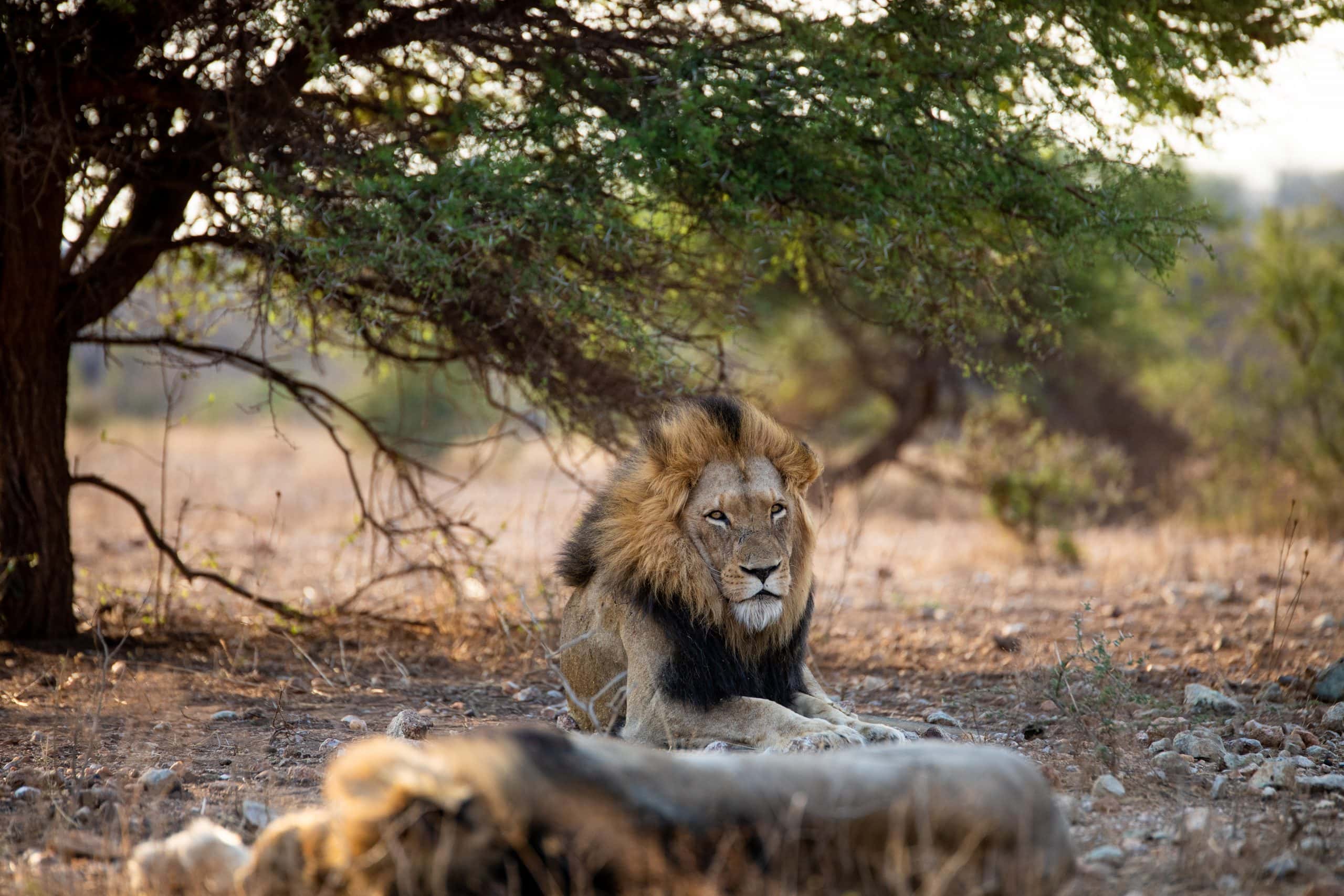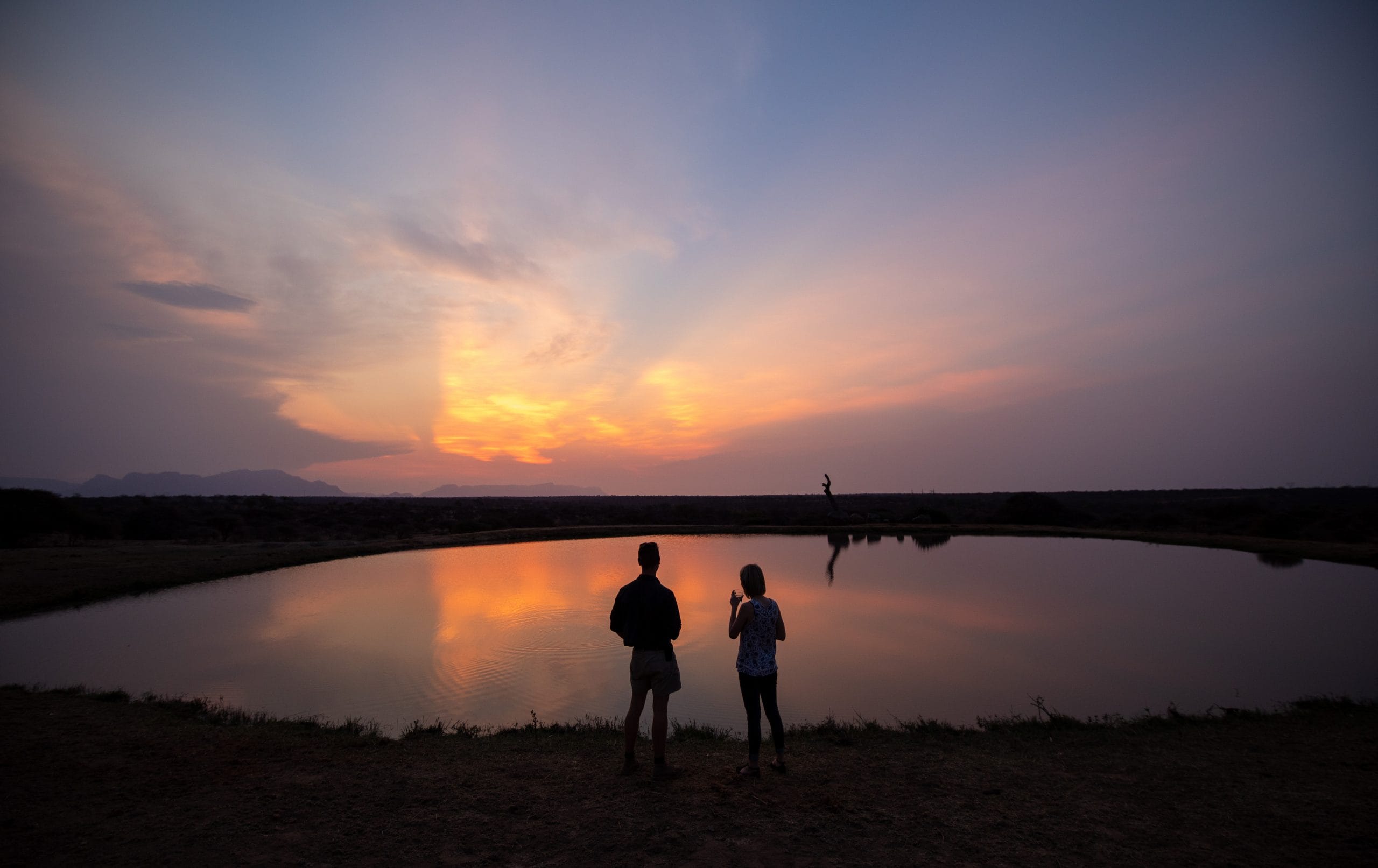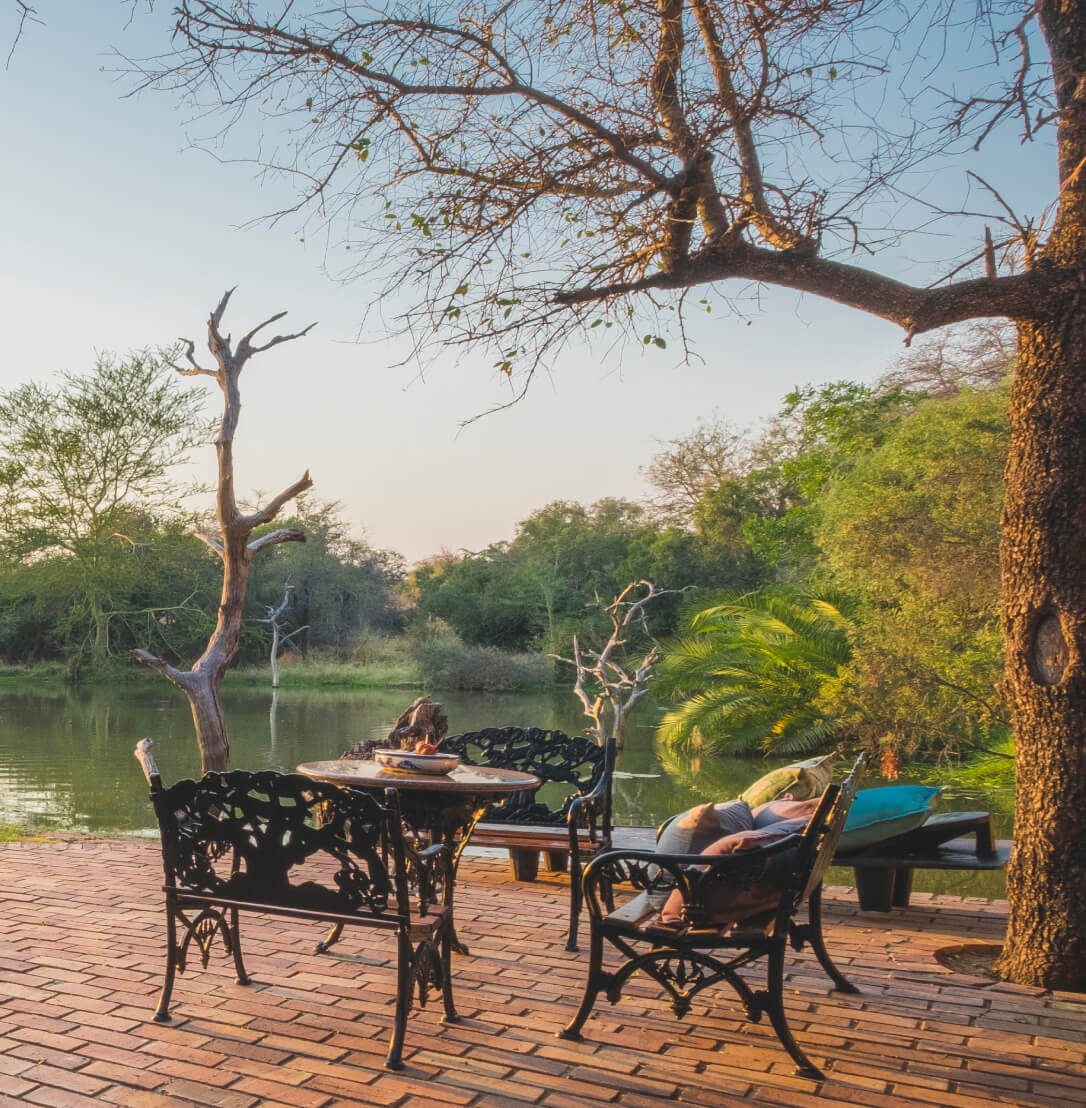

Help to keep the endangered rhino alive
Our Rhino Conservation Safari offers a unique insight into the white rhino and its behavioural patterns. During the three night, four day programme a group of 2 (min) to 10 (max) guests will accompany an allocated ranger to explore the reserve and spot rhinos. Prior to venturing out, guests will undergo a comprehensive briefing and be given specific roles.
Our vet will then join the group and set off in a helicopter to dart the targeted white rhino. Once the rhino is darted and sedated, the participants will join the specialist ranger team on the ground and assist with administering the necessary medication, taking measurements for scientific and medical purposes and monitoring the animal while it is still sedated. Participants will also have an opportunity to witness as the rhino horn is drilled for the insertion of a microchip, and to perform an ear-notching procedure for future identification. Both of these tasks are important for the preservation of the rhino.
Jabulani has been instrumental in the support and preservation of the rhinoceros population since its successful introduction to the Kapama Game Reserve in 1989. A game relocation programme was introduced, and as a result the Kapama Game Reserve today supports a wide variety of wildlife including elephant, buffalo, rhinoceros, and large populations of giraffe, impala, blue wildebeest and kudu. Predators include lion, leopard, cheetah, spotted hyena and many smaller species.
Through The Rhino Conservation Safari, Jabulani offers its guests the rare opportunity to help preserve this endangered species.
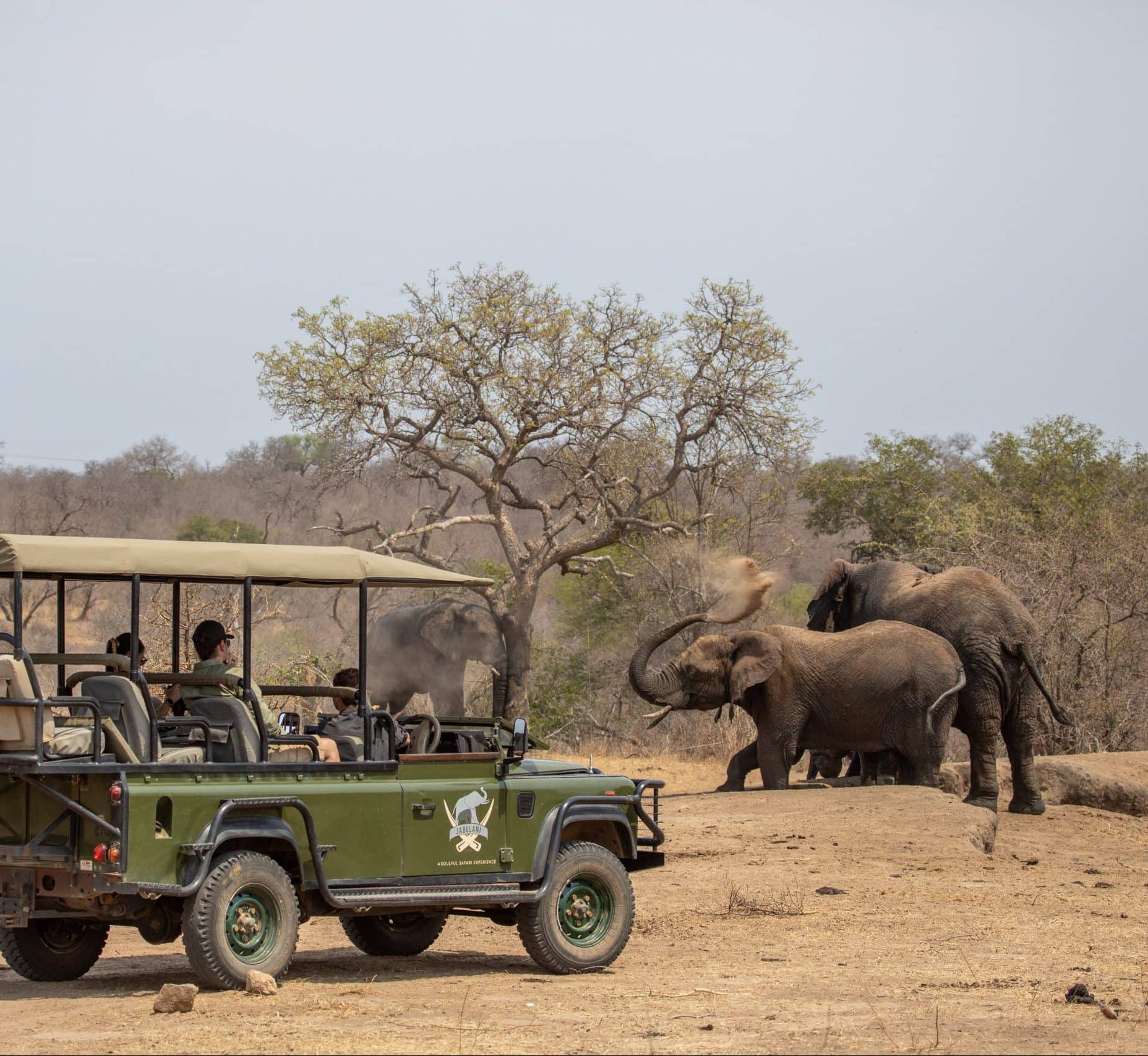
Rates and conditions
ZAR 48,000.00 for the full day programme, 100% of which is allocated back into the Rhino Conservation Fund.
- This fee excludes accommodation; but includes a private safari vehicle and participation in the rhino conservation experience (maximum 10 people/ minimum 2 people).
- The experience is on request and a lead-time of at least 30 days is necessary.
- Participants must be 16 years and older.
- This programme is available all year, but the best time to experience it is during the winter period of 1 May – 30 September.
- Rate at luxury suites per person sharing per night ZAR 18,000 at Jabulani. Zindoga Villa exclusive use rate per night ZAR 105,000.
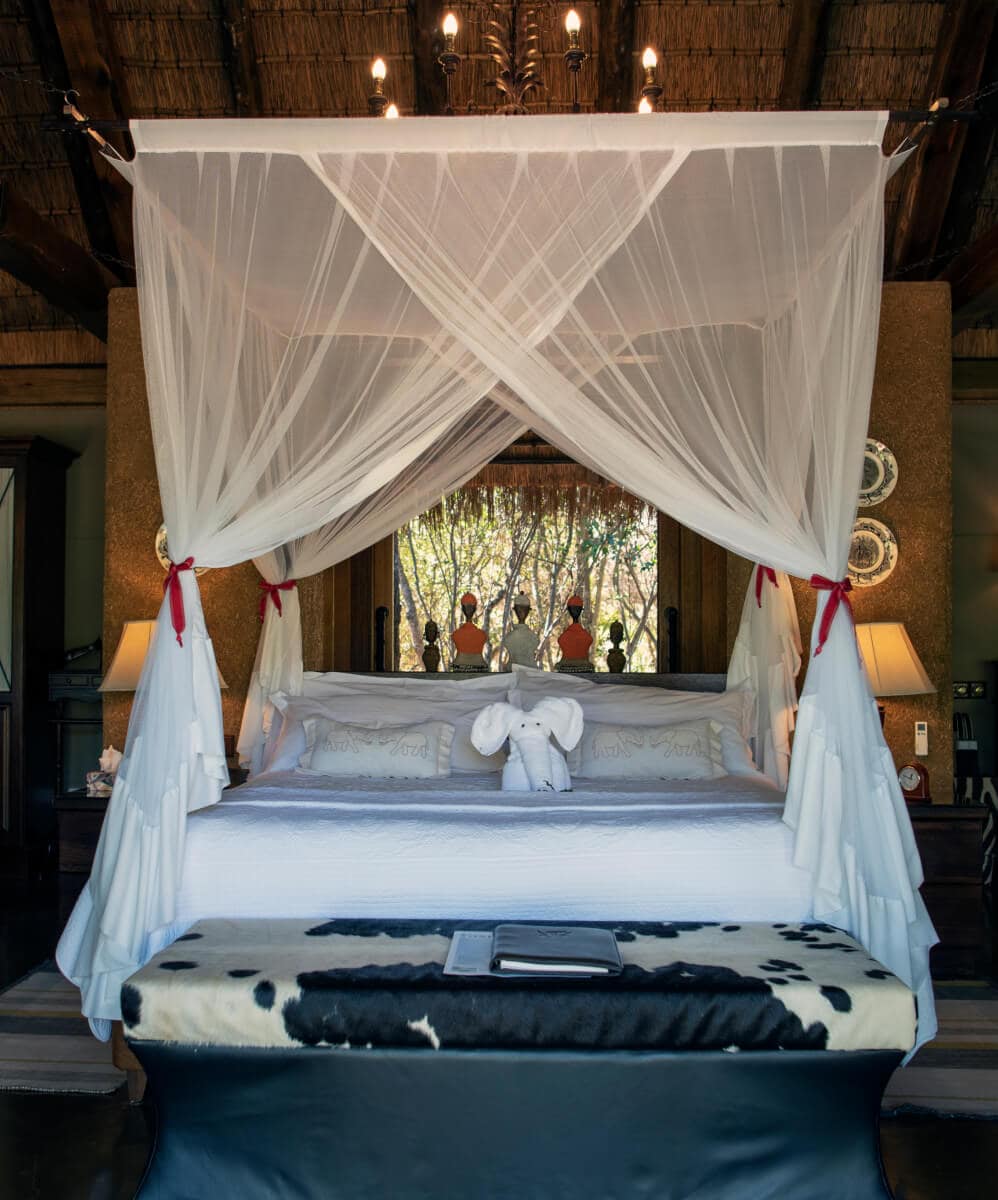
Notes
Jabulani is one of the largest private game reserves in South Africa, and it is owner-run and managed with a strong focus on conservation and community development. There is 16 000 hectare/39536,861 acre of pristine bushveld. Apart from the traditional safari activities, guests can partake in, ‘Big Game’ walks, volunteering initiatives and cultural visits.
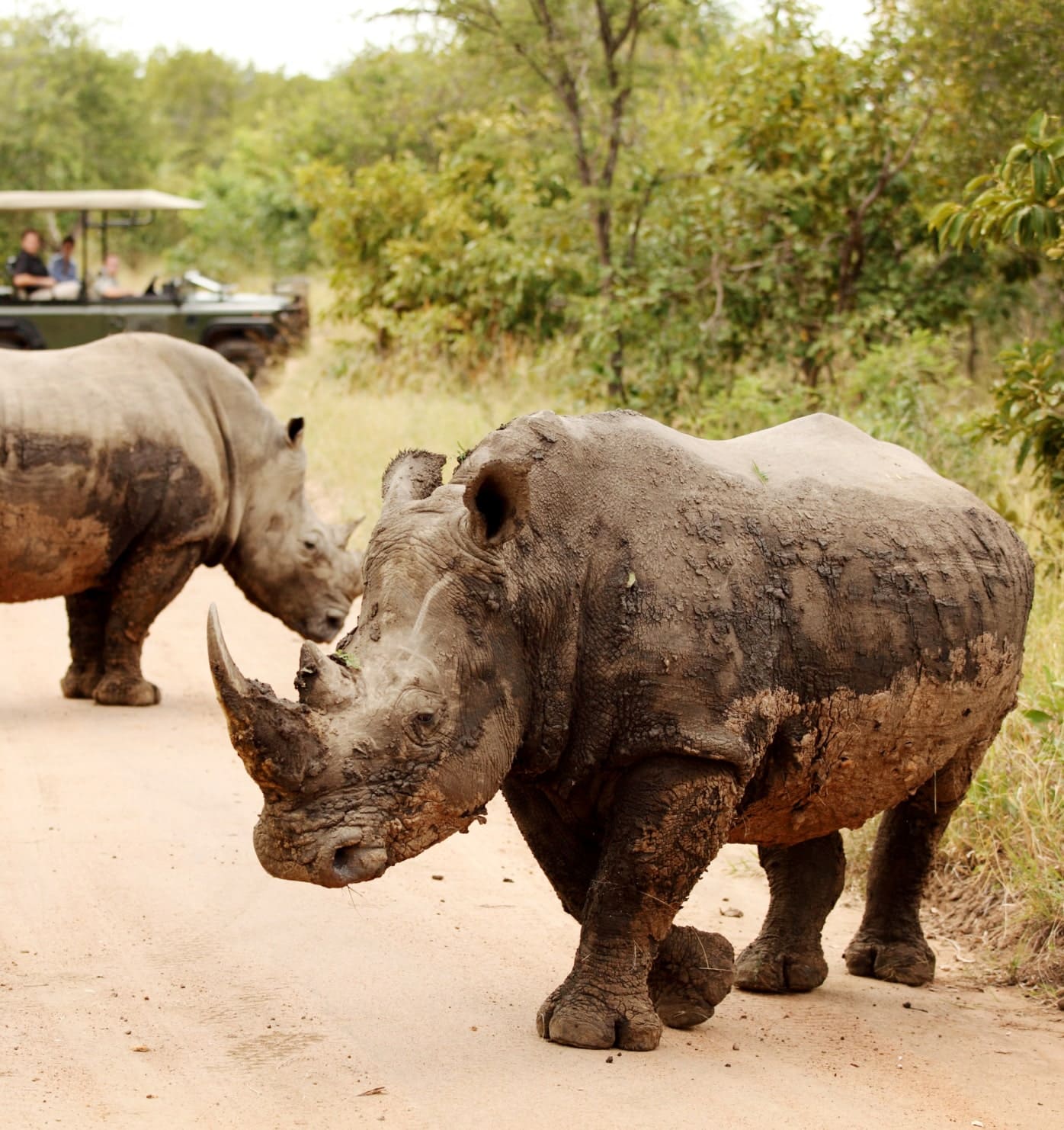
More information
Jabulani MD and Owner & HERD Founder, Adine Roode has been instrumental in rhino conservation and pioneering procedures to help victims of poaching. She previously ran the rhino rehabilitation programme at HESC and was part of the rhinos’ rehabilitative journey up until the HERD elephant orphanage was built, and shortly after the rhinos were released.
Jabulani and the HERD elephant orphanage are situated in the Kapama Private Game Reserve, in the Greater Kruger Area and are guarded by a dedicated anti-poaching unit that works with the police as well as the CIS in the Kruger National Park, and several other anti-poaching units. The Kapama APU patrols in the high-risk areas of the reserve and conducts daily foot patrols on the reserve looking for traps and poachers. It also conducts occupational safety inspections on a regular basis.
In an effort to combat poaching, the Kapama APU has been using tracking dogs as part of its anti-poaching initiative. The canine unit includes Bloodhounds and Belgian Malinois dog breeds, who have been trained to track potential poachers.
Other conservation initiatives
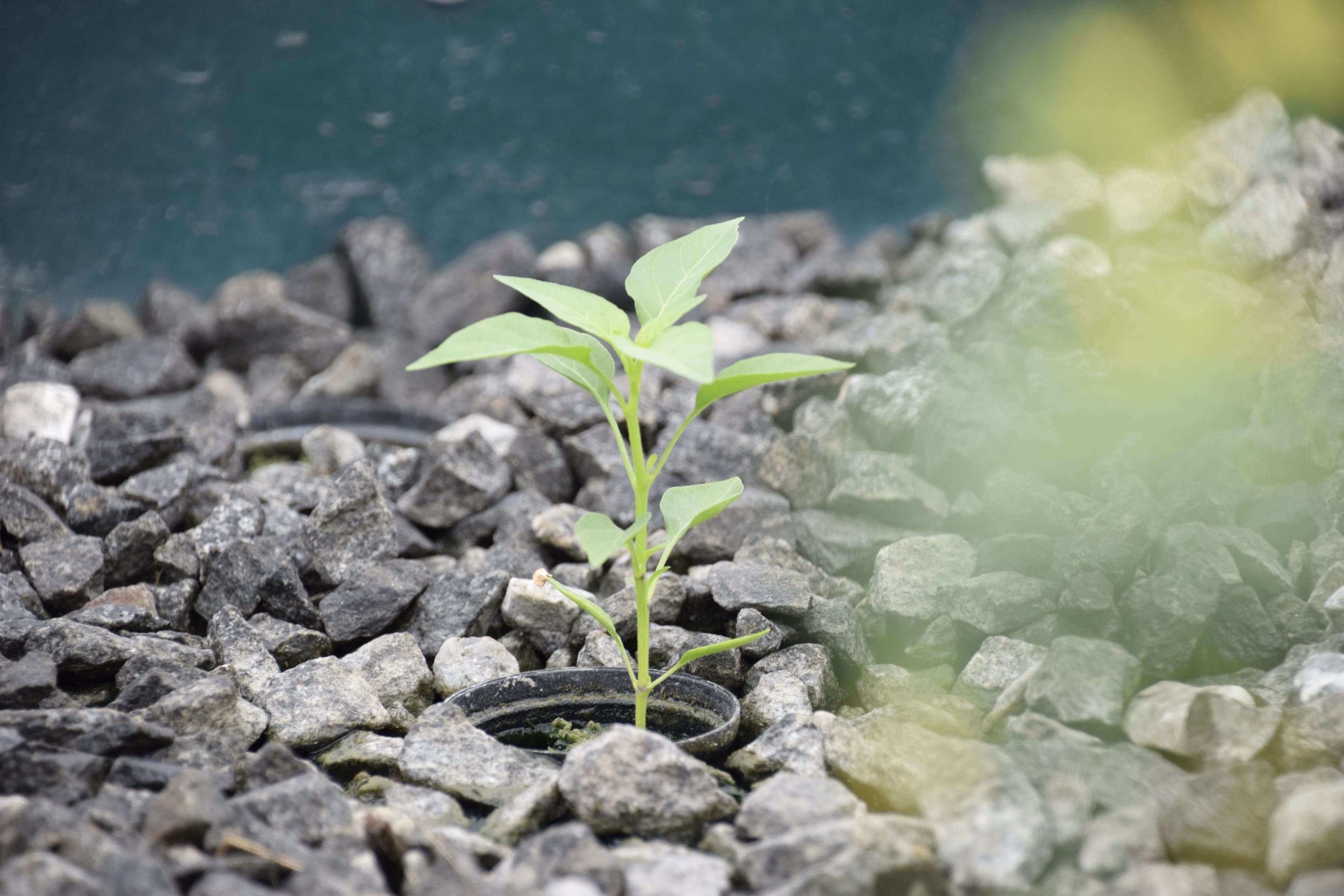
Aquaponics
We believe that looking after our planet has many sides to it, including managing our human consumption and production. That’s why we believe in using fresh seasonal ingredients in our kitchen as much as possible to limit our dependence on external fresh produce suppliers. We do this by growing our own produce onsite with our innovative aquaponics system that combines aquaculture and hydroponics.

Sustainable Tourism
Everything we do and build is centred around leaving a light ecological footprint and making a difference. This includes our eco-friendly lodge design, bana grass plantation project, elephant dung eco-projects, water conservation, recycling, and wildlife conservation.
